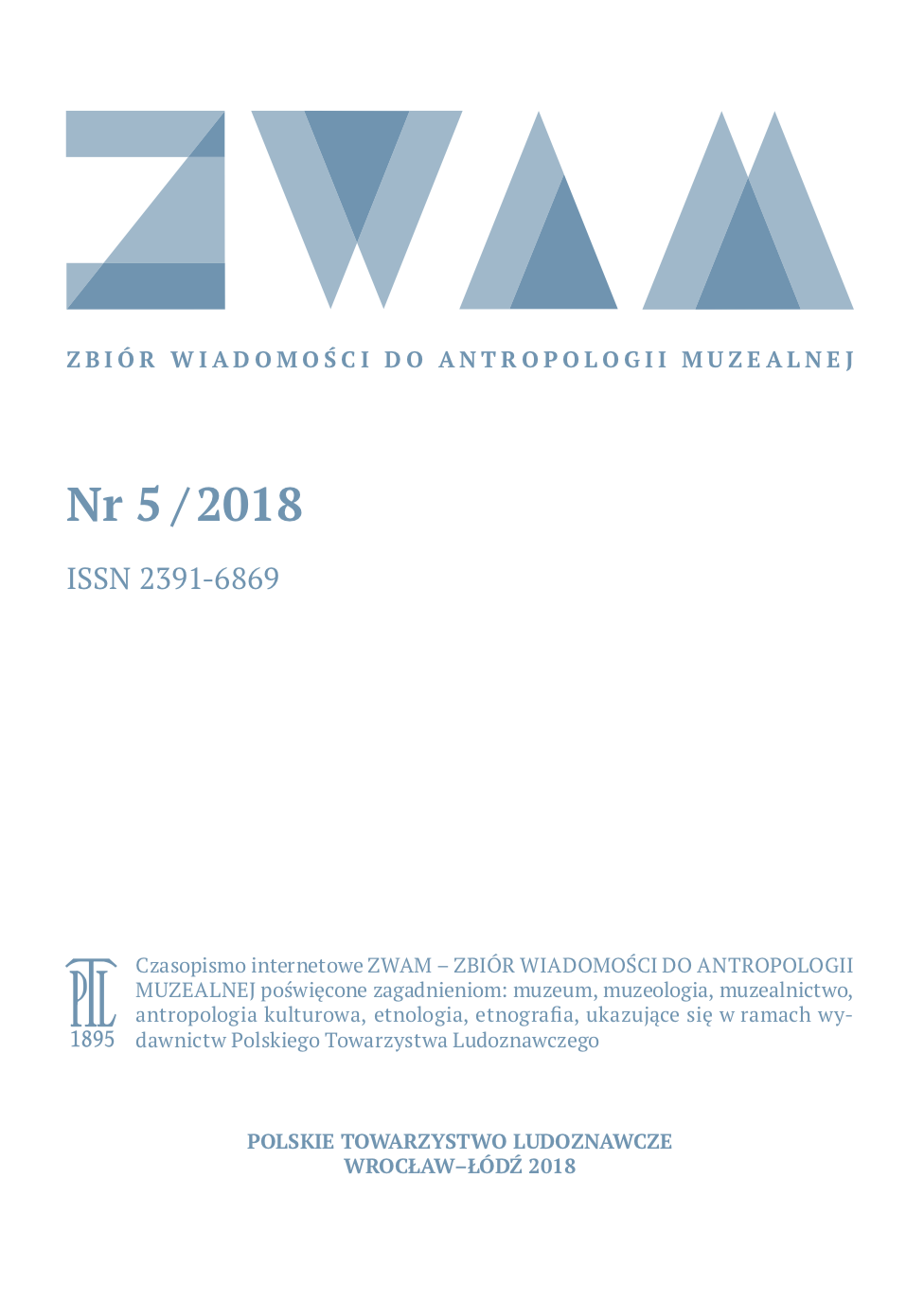„Arka” Józefa Iwańczaka – o pewnym spiskim muzeum rodzinnym
Józef Iwańczak’s ‘Arka’ – about a certain Family museum in polish Spisz
Author(s): Janusz BarańskiSubject(s): Sociology, Sociology of Art
Published by: Polskie Towarzystwo Ludoznawcze
Keywords: family museum; inclusive museum; collection; cultural heritage; cultural region
Summary/Abstract: The subject of the paper is a private ethnographic collection, assembled over the past years by Stanisław Iwańczak, a retired farmer and a construction worker, in the village of Niedzica, in the southern region of Polish Spisz, displayed in a former farm building. The collection consists of agricultural tools and crafts, furniture, housewares, costumes, utensils, religious pictures, photographs, books, letters, decorations. In the creation of the collection were also involved Mr. Iwańczak’s children, who emigrated to the United States in the 1990s. The con- ducted ethnographic research shows that the collection plays an important role in preserv- ing not only ancestral identity, but also a wider one – local and regional. The reconstructed traditional interior hosts periodical family celebrations, especially during the annual visits of Mr. Iwańczak’s children, photo shoots exhibitions, local folklore music concerts and school classes concerning the culture of the region. This self-made museum, with collected objects de memoire, seems to be a kind of mental and cultural shelter for the members of the family living abroad, as well as for the local community. The collection is an anchor preventing people from losing the contact with the tradition of the region. It represents the heritage of absence, at the same time playing the role of a transmission belt linking generations, enabling trans valuation of this heritage in the modernized environment.
Journal: Zbiór Wiadomości do Antropologii Muzealnej
- Issue Year: 5/2018
- Issue No: 1
- Page Range: 67-156
- Page Count: 90
- Language: Polish

